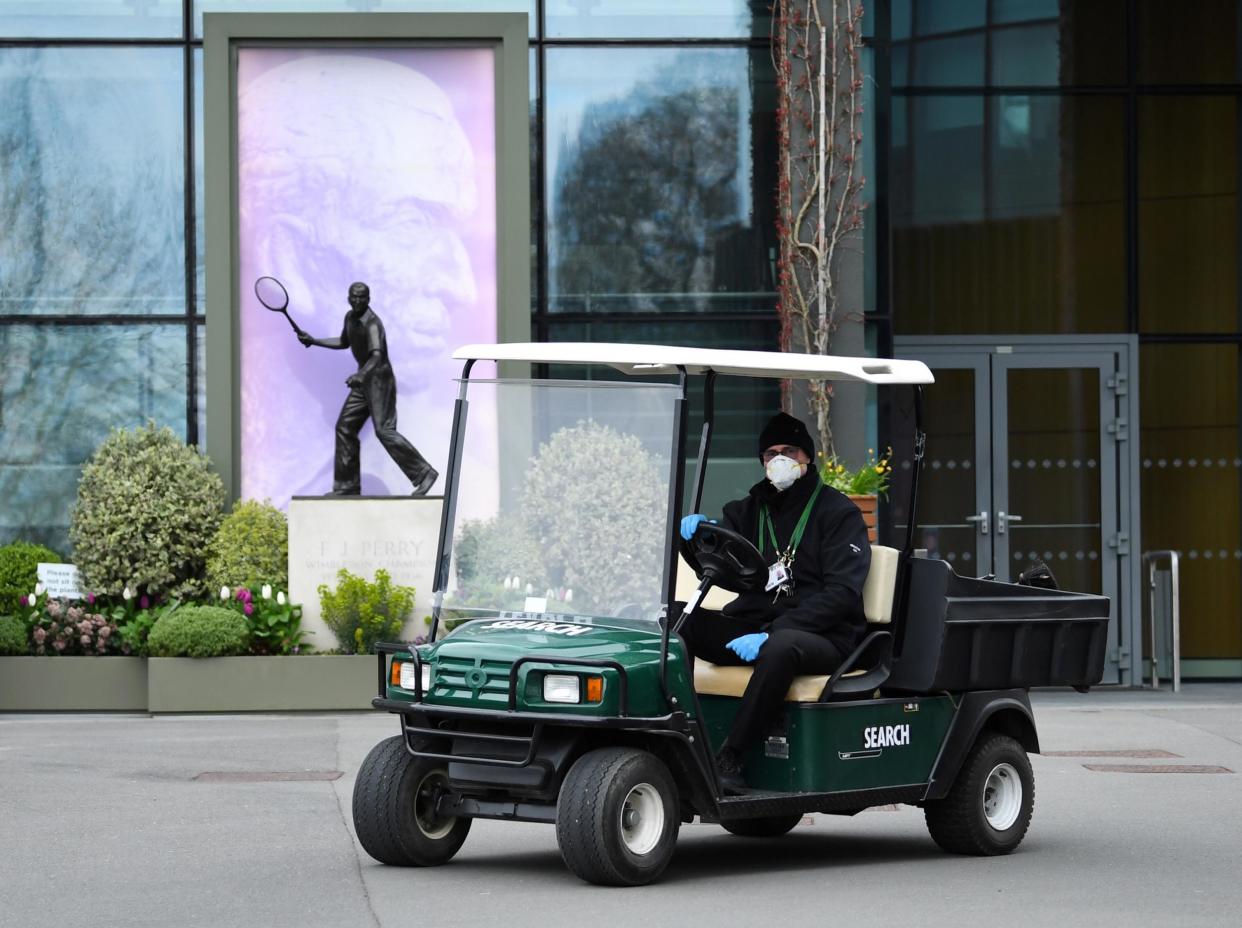Wimbledon has taken the difficult but correct decision. Tennis’s squabbling factions should take heed

It is a sign of these miserable times that the most startling thing about the All England Lawn Tennis & Croquet Club’s decision to cancel the 2020 Wimbledon Championships was that it had taken them this long. The first cancellation of the tournament since World War II was rubber-stamped at an emergency board meeting on Wednesday, the centrepiece of the British sporting summer the latest event to fall victim to the global coronavirus pandemic.
There are numerous practical reasons for the decision. There is little clarity on when the UK’s lockdown restrictions will ease, with similar uncertainty over whether players will be able to travel from around the world to attend. And then there are the courts. Wimbledon is the only Grand Slam to take place on a living surface: verdant lawns of perennial ryegrass cut to precisely 8 millimetres in length which require 15 months of fastidious preparation. Shifting the tournament back a few weeks would not only make these courts dewy and dangerous, it would also prevent them from being in pristine condition for the following summer.
Every year there is a demandingly small window in which to stage the Championships and, for 2020, that window has already closed.
Yet such pragmatic concerns pale in comparison to the far more significant moral issue at hand. “The single most important consideration is one of public health, and we are determined to act responsibly through the decisions we make,” Richard Lewis, the chief executive of the AELTC, has remarked. The summer will not be an ideal time for thousands of fans to congregate together, even if the spread of the virus has abated. Not even Wimbledon’s imposing green gates can keep the outside world from closing in.
Another group will appreciate the AELTC’s decision: the players, who have thus far been badly let down by their sport’s combined response to the crisis. And while nobody benefits from the enforced absence of the tour’s most prestigious tournament – not least 38-year-olds Roger Federer and Serena Williams, who are battling not only age but younger rivals – players will at least now be spared from looking at what remains of the tennis calendar with even greater trepidation.

The sport’s initial reaction was sensible, with the ATP and Women’s Tennis Association making the joint decision to suspend professional tennis until early June. Shortly after the AELTC's announcement, the two tours extended the suspension through to July 13, effectively scrapping the entire grass court swing. But not every Grand Slam has acted with the AELTC’s rationality. Last month, the Fédération Française de Tennis elected to move the French Open to the end of September without bothering to consult anybody first. “Such a decision should not have been made unilaterally,” the US Open was quick to sniff in a retaliatory press statement.
There are two big problems with such a decision. First, it pits the French Open against the Laver Cup, Federer’s pet project and tennis’s answer to the Ryder Cup. Second, it would mean two Slams on two different surfaces being played within a week, given that the hypothetical US Open is set to end on September 13. And while it would admittedly be perversely fascinating to watch a grim-faced Novak Djokovic straining every sinew to win two Grand Slams back-to-back, it doesn’t seem even remotely feasible.
Part of the problem is the rabble of competing interests with different opinions on how tennis should wade through the current crisis. There is the International Tennis Federation, the ATP and the WTA, as well as the separate entities that run the four Grand Slams: Tennis Australia, the FTF, the AELTC and the United States Tennis Association. And that’s without even getting into other significant groups, such as the influential player committees, sponsors, television partners and so on. The sport is resistant to change with good reason.
The confusion and squabbling naturally hurts the players, who are the people that matter the most in all this. It is understood that Djokovic has already tentatively floated the idea of cancelling the season while on a conference call with other players, while those who languish lower down the rankings – who do not qualify automatically for Grand Slams and who make their living from smaller events that are now likely to be scratched – are in an even more precarious position.
Like so many other sports, tennis finds itself facing an existential threat. Players and tournaments alike are braced for significant losses that could prevent them from returning when the pandemic is over. And while the AELTC’s decision does little to help these problems, it does at least provide some clarity for what remains of the rest of the season. More clear-headed thinking is urgently required.


